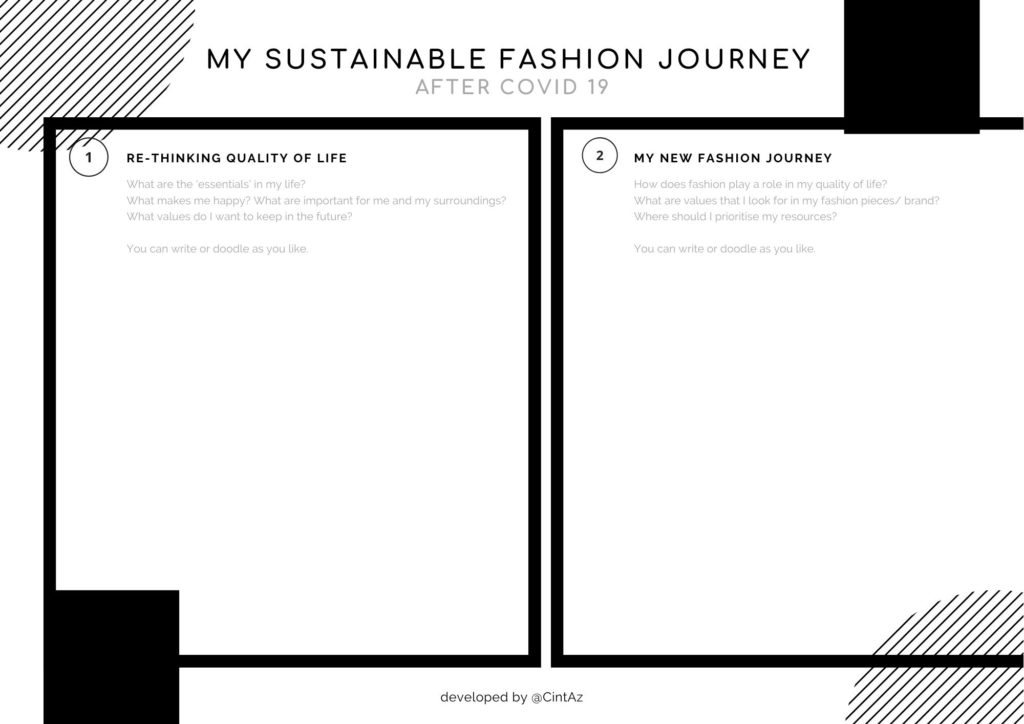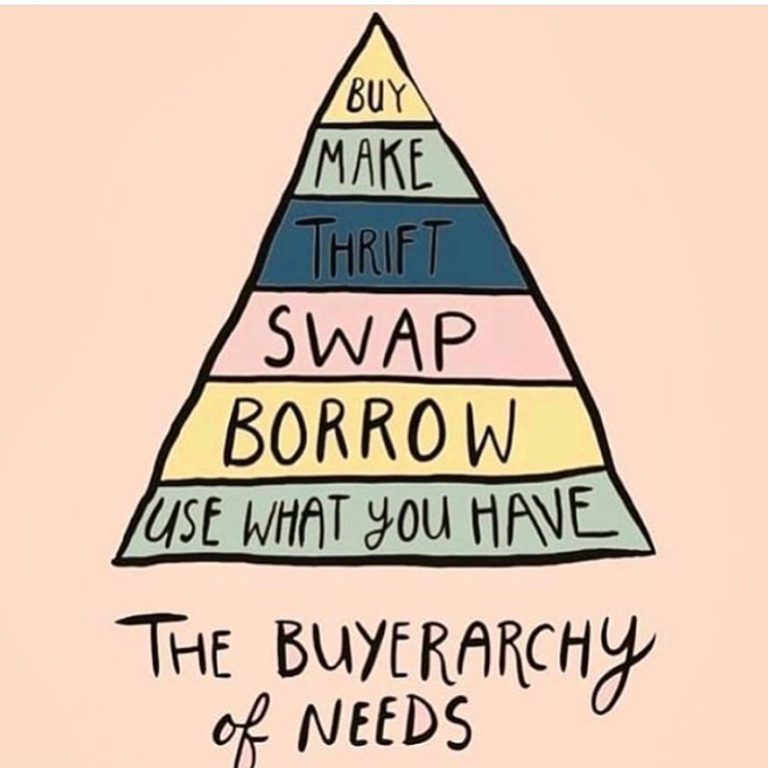Can consumers in Indonesia start to embrace sustainable fashion?
Despite being one of the major textile-producing countries in the world, not many Indonesians are aware of the negative impact the fashion industry has on the environment and the people who make our clothes. But this might change because of the COVID-19 crisis. It is no secret that the pandemic has impacted fashion supply chains everywhere, with textile company workers being laid off and factories going out of business. Consumers are forming a new ‘norm’ from their #stayhome life by having to live less by necessity.
To get a glimpse understanding on how Indonesians behave during their #stayathome period, we conducted a mini survey to a group of participants who signed up for an online talk to commemorate the Fashion Revolution movement. Around 50 signed-up participants were asked to answer three simple questions: If they bought any fashion products during their #stayhome period, what they bought and what their main driver was to purchase.

The result of the mini survey showed that even amongst consumers who are likely aware of the impact of the fashion industry, there was still an indication of fashion consumption (1 out of 3 people). And they were doing so because of two main reasons: (1) An optimistic view of the future and (2) Support for local brands. Now, this survey is by no means a representation of the whole population, but what it teaches us is that people will still consume to a certain extent, even after the pandemic subsides, but their values are likely to change.
People will still consume to a certain extent, even after the pandemic subsides, but their values are likely to change.
If there is one thing #stayathome has taught us, then it is that we need to re-evaluate how we view life quality. As we are all consumers, we have the chance to drive a new pathway and make better decisions for a new ‘normal’ in the future, and how it impacts our quality of life. We need to start asking questions such as ‘What does fashion mean to me (or my company)? How do our actions inluence our surroundings? What are the ‘essentials’? Where should I prioritize my resources?’
There is no better time than now to start embracing sustainable fashion.
For brands, incorporating the reflection of the new life quality, will ensure survival and loyalty of customers over the long-term. The Edelman Trust Barometer study during the pandemic shows that “businesses must price products affordably to address inequality and unemployment, make supply chains sustainable and inclusive of small business, and be a source of factual, unbiased information for their employees to share out with the community”. Consumers want to see authenticity in what they buy, and see brands support social causes they care of. With high interest in local brands, there is a chance to start this ‘new consumption journey’ locally, instead of trying to persuade global brands to drive this change.
In conclusion, consumers and brands have the power to navigate Indonesia’s future towards a more meaningful society, one that takes into account the impact of fashion to people, climate change, and the environment as a whole. Embracing sustainable fashion means that we start being more considerate of our actions and the impact they create. We can no longer stay in the pathway that we used to be. Now, the time to reflect on our quality of life will be the history we write for the generations to come.
If you’re feeling reflective today, feel free to download this canvas and start to write or doodle your sustainable fashion journey through #stayathome and post-Covid.



